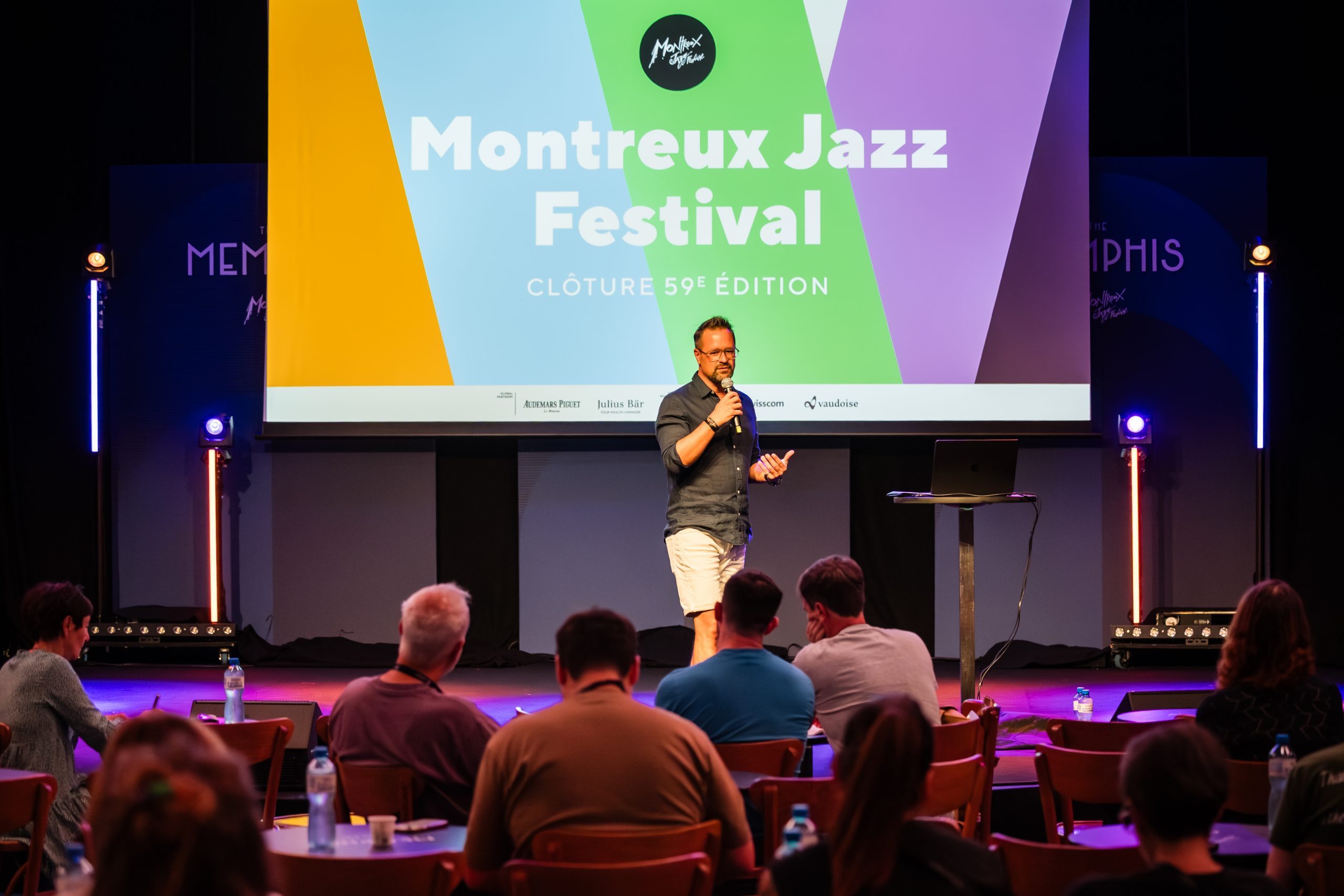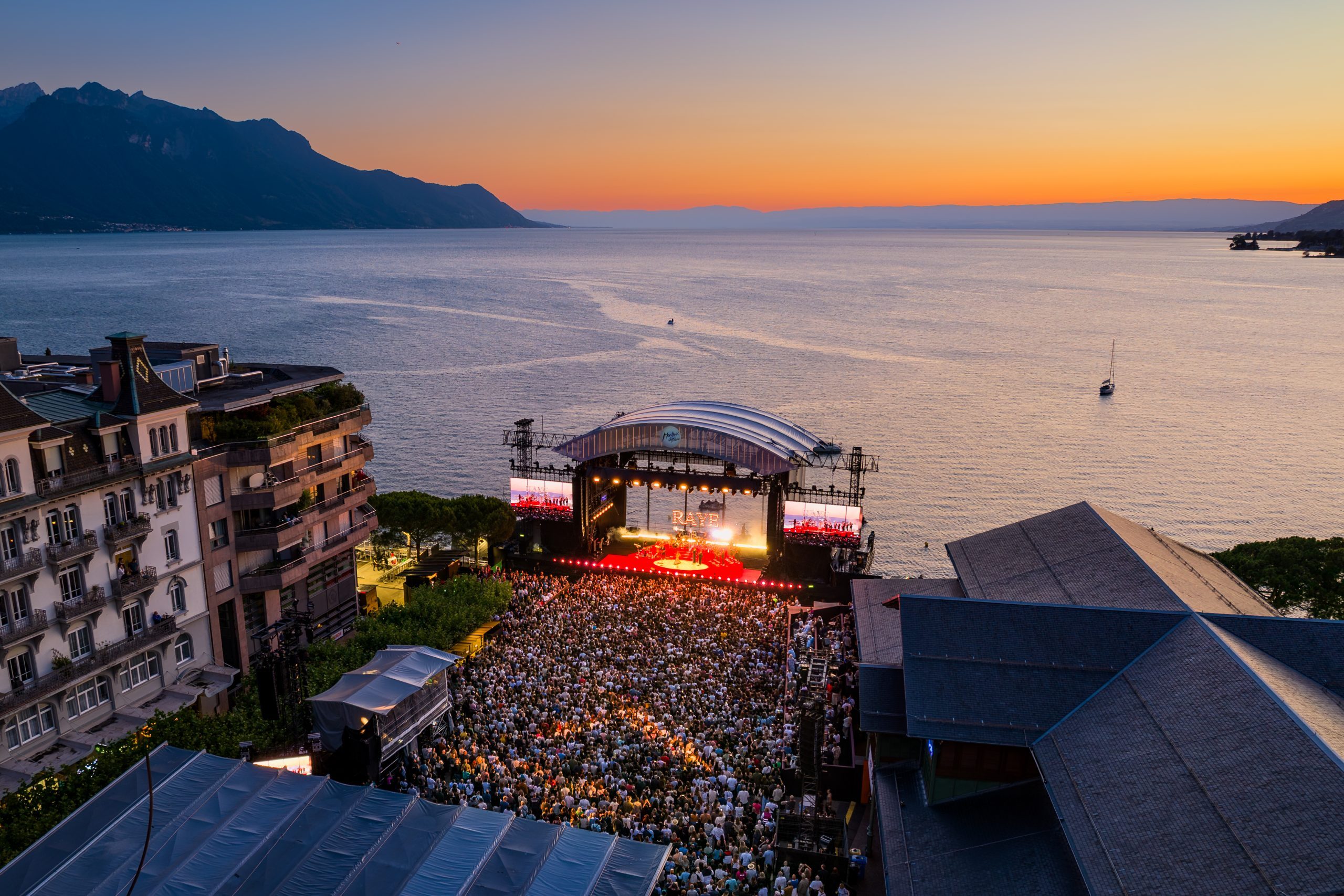The 59th edition of the Montreux Jazz Festival, held from July 4 – 19, 2025, on the shores of Lake Geneva, continues to redefine what a music festival can be – not just a gathering of legendary performances, but an immersive, emotionally charged experience that resonates deeply with artists and audiences alike. With over 250,000 visitors, 700 concerts and activities, and a vibrant yet serene ambiance, the festival continues to thrive on its core brand value: exclusivity through intimacy. Here, music becomes more than a performance – it becomes a memory.
Set against the backdrop of Lake Geneva, the Lake Stage, in its second and the last year outside the Convention Centre, delivered breathtaking moments as its rear panels opened onto the water, letting nature become part of the performance.
This year’s lineup brought together global icons and breakthrough talent: from Neil Young, Diana Ross, Lionel Richie, and Chaka Khan, to London Grammar, RÜFÜS DU SOL, Jamie xx, FKA Twigs, Pulp, Brandi Carlile, Jorja Smith, Beth Gibbons, FINNEAS, Siedah Garrett, RAYE, Fujii Kaze, and Noah Kahan. Across the Lake Stage, Casino Stage, and beloved free stages – including The Memphis, La Coupole, Ipanema, Li Lo, Terrasse Nestlé, Super Bock Stage, and Spotlight Stage – audiences encountered a rare blend of musical excellence and emotional closeness.
The Montreux Jazz Festival was created in 1967 by Claude Nobs and directed by Mathieu Jaton since 2013. In the conversation with Mathieu Jaton, CEO of the Fondation du Festival de Jazz de Montreux, we explore the evolution of Montreux from a jazz-rooted festival into an iconic Swiss brand. We reflect on the creative vision behind its growing global impact, its commitment to innovation, and how it maintains its soul while constantly reinventing its form.
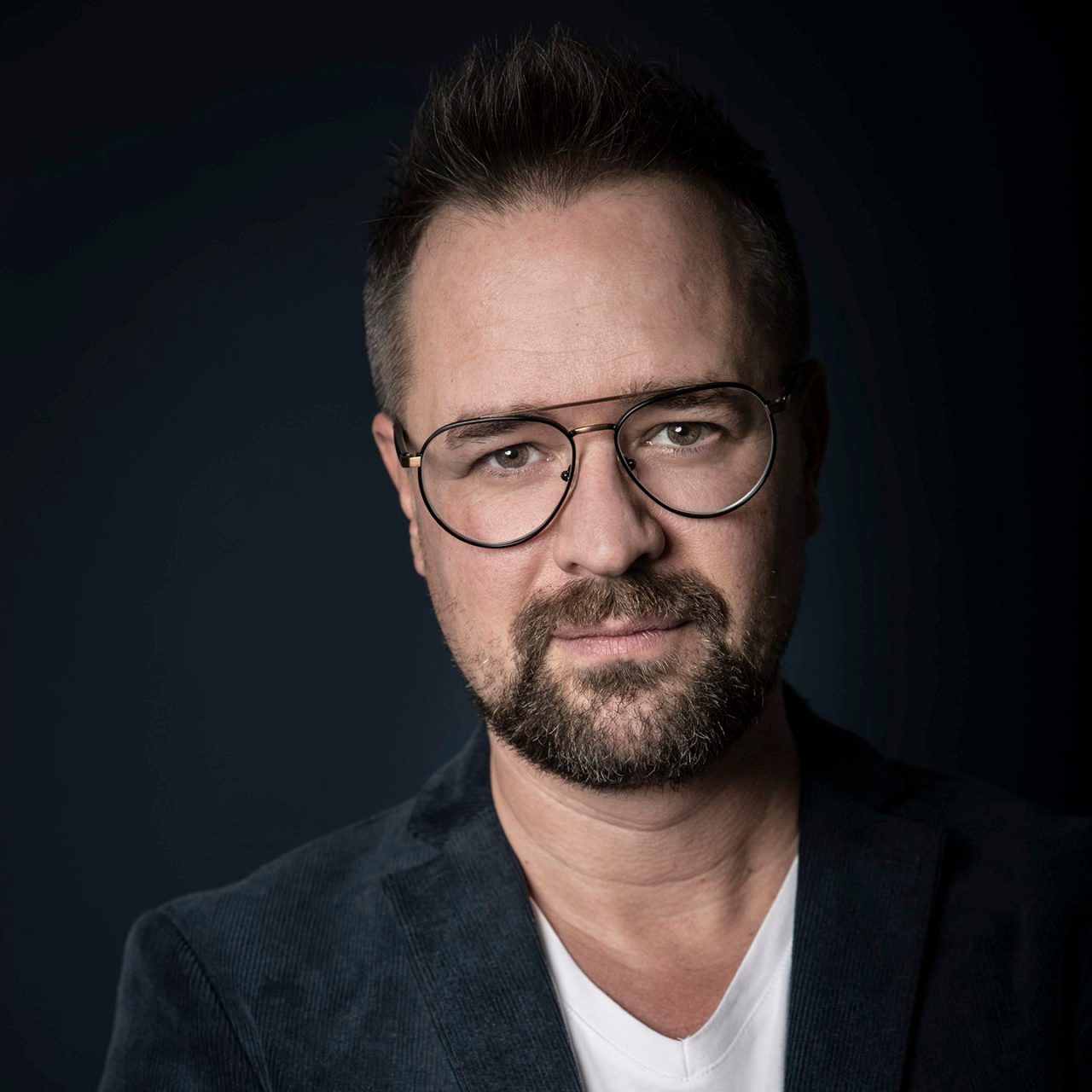
ZERO ZURICH: From its beginnings to its current status as a global cultural icon, the Montreux Jazz Festival has evolved far beyond the boundaries of a traditional music festival – it has become an emblem of Swiss cultural excellence. Montreux feels like a piece of cultural infrastructure, where music, place, and people are deeply connected. How do you approach balancing these elements when shaping the festival’s identity?
MATHIEU JATON: We’ve always positioned Montreux not just as a festival, but as something much deeper. We often say we’re not just festival organizers, we’re emotional creators. Of course, music is at the core of it all, but honestly, it’s just the tip of the iceberg. Montreux today represents so much more – there’s a strong economic impact, a huge touristic pull, but more than anything, it’s a social experience, and that’s becoming more important in the world we live in now.
ZERO ZURICH: Claude Nobs, the founder of the festival, once described his vision for Montreux as a “five-star festival.” Do you think that idea still defines the essence and magic of Montreux today?
MATHIEU JATON: For me, the essence of Montreux lies in hospitality at the highest level – not luxury, but elegance. Elegance isn’t about extravagance; it’s about the simple things: a genuine smile, the way we treat each other, and showing tolerance and respect. That’s the real difference between luxury and elegance. So yes, I do agree with the idea of a five-star festival, but those five stars mean much more than luxury, they represent this deep, human elegance that defines Montreux.
ZERO ZURICH: You mentioned a new definition of “five-star” that centers on being “gentle” and thoughtful. How does this idea of gentleness shape the Montreux Jazz Festival experience, from the planning to the interactions?
MATHIEU JATON: Yes, absolutely, it all starts with our DNA of hospitality. I’m really happy to hear your impression, because that’s exactly what we’re aiming for. When Claude Nobs created the festival, his vision of hospitality was deeply connected to the artists. Claude was, in many ways, an artist himself. His thinking was simple: if the artist is happy, the audience will have an unforgettable experience. That’s where it all began.
But the world has changed. Back then, we lived in a “name first, location second” culture. Now, we’ve shifted to “experience first, name second”. Especially with the new generation, it’s all about how something feels – emotionally, physically, even sensorially. That’s why your word, “gentle”, really resonates with me. It’s not just about treating people well, it’s about creating an environment that’s thoughtfully designed at every level, where care is felt, not forced.
Coming from a hotel background, I always remind my team: a festival is about sound and vision, but we must go beyond that. True hospitality is multi-sensory. If you’re standing on a beautiful stage by the lake, but it smells terrible because a restroom is too close, that ruins the experience. Or if you lean on a railing and it’s uncomfortable, that detail matters.
The goal is to design everything so seamlessly that people don’t even notice. It’s like the work of an invisible concierge – everything flows, everything feels right, and when people go home, they may not be able to explain exactly why… But they’ll say: ”Wow, that was amazing”.
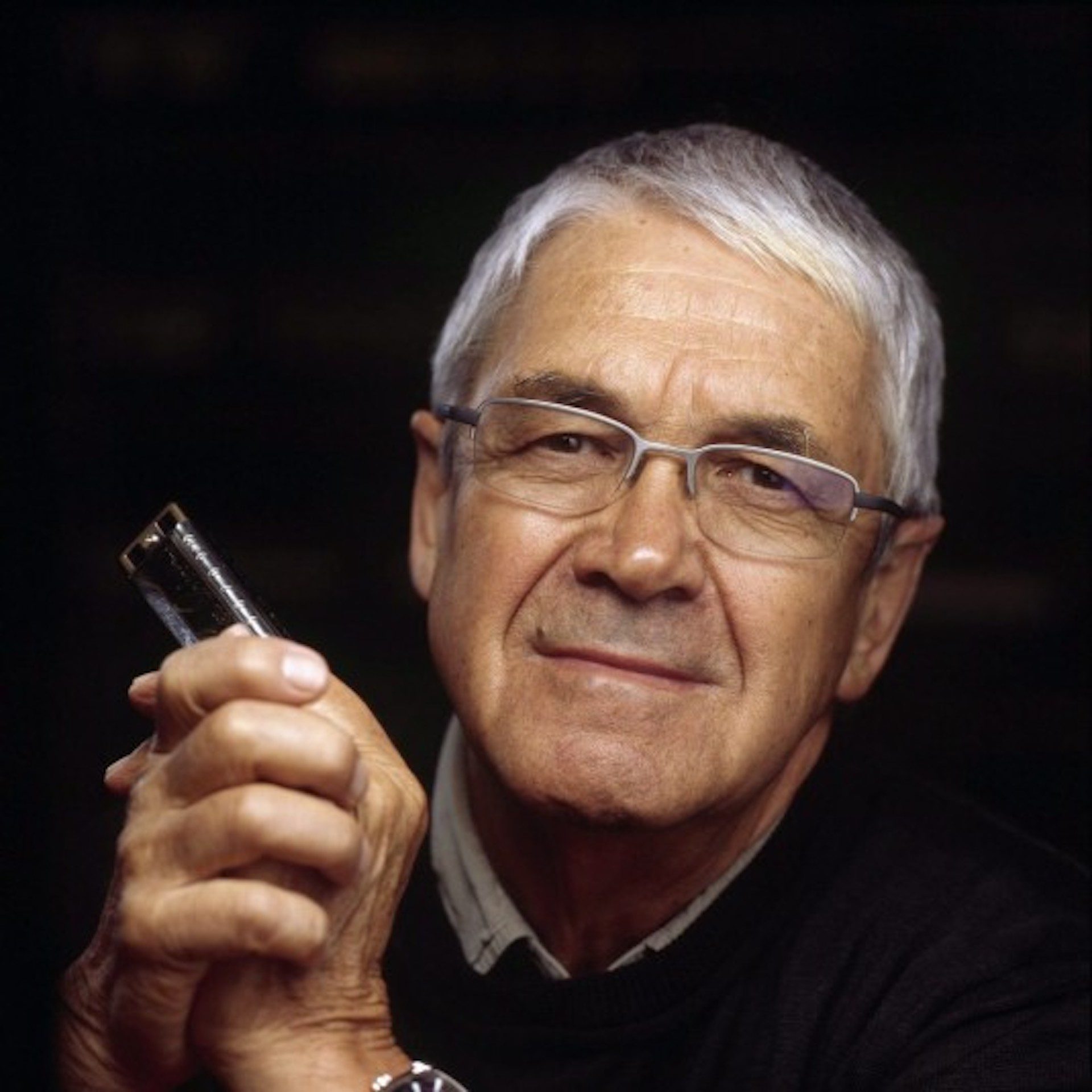
ZERO ZURICH: Montreux has clearly moved beyond the traditional concept of a music festival. It’s now a powerful cultural brand with a unique identity. Building on the legacy of Claude Nobs and his pioneering spirit, you’ve taken that foundation and shaped something recognizably distinct over the past decade. How conscious has that brand-building process been for you?
MATHIEU JATON: When Claude Nobs passed away, it was a very emotional and difficult moment, not just because we lost him, but because Claude was the festival. The identity of Montreux was so closely tied to his presence, his personality, his energy. I had the privilege of working alongside him for 15 years, we were very close, like family. So, when I stepped into the role of CEO, I made one thing very clear: I would never try to replace Claude. You can’t replace a creator. That kind of spirit is one of a kind.
Instead, I saw my role as helping the brand become bigger than any one person. Claude couldn’t do that, because the festival was an extension of him. But for Montreux to survive and thrive long-term, it needed to stand on its own – independent of who’s running it. That became my mission, and over the past 10 years, we’ve worked hard to make Montreux a brand with real, lasting value.
At the beginning, I’ll be honest, it was tough. People would say: “Why aren’t you on stage like Claude?” or “Why don’t you hug Santana like he did?” And my answer was always the same: “Claude was Claude, and I’m doing what I believe is right for the festival today.“ It took time, but now, especially in the last few years, with the festival’s recognition growing internationally, people are starting to understand this shift.
ZERO ZURICH: Do you see this evolution, from a festival to a legacy brand, as something inherently Swiss in its values, particularly in how you blend creativity, hospitality, and humility?
MATHIEU JATON: What I’m most proud of is that we’ve done it with a strong team spirit. In many cultural institutions, there’s a lot of ego involved, it becomes about personal recognition rather than audience experience. For me, that’s one of the problems in the arts world: when decisions are made to impress, not to serve. Our focus at Montreux is always simple: Why are we doing this, and who are we doing it for? If we don’t have a clear answer to that, we don’t do it.
I come from the hotel world, and I’ve brought that mindset here. Great hospitality, and great festival-making is about invisible care. When something feels effortless, seamless, thoughtful – that’s the magic. And to create that, you need a team culture where everyone feels ownership. I believe the difference between good and great management is this: in good management, the team executes your vision because you’re the boss. In great management, the team makes the vision their own. They improve it, shape it, challenge it, because they believe in it.
And that’s the kind of festival we’re building now – one that honors its incredible past, but looks firmly ahead, with humility, purpose, and collective pride.
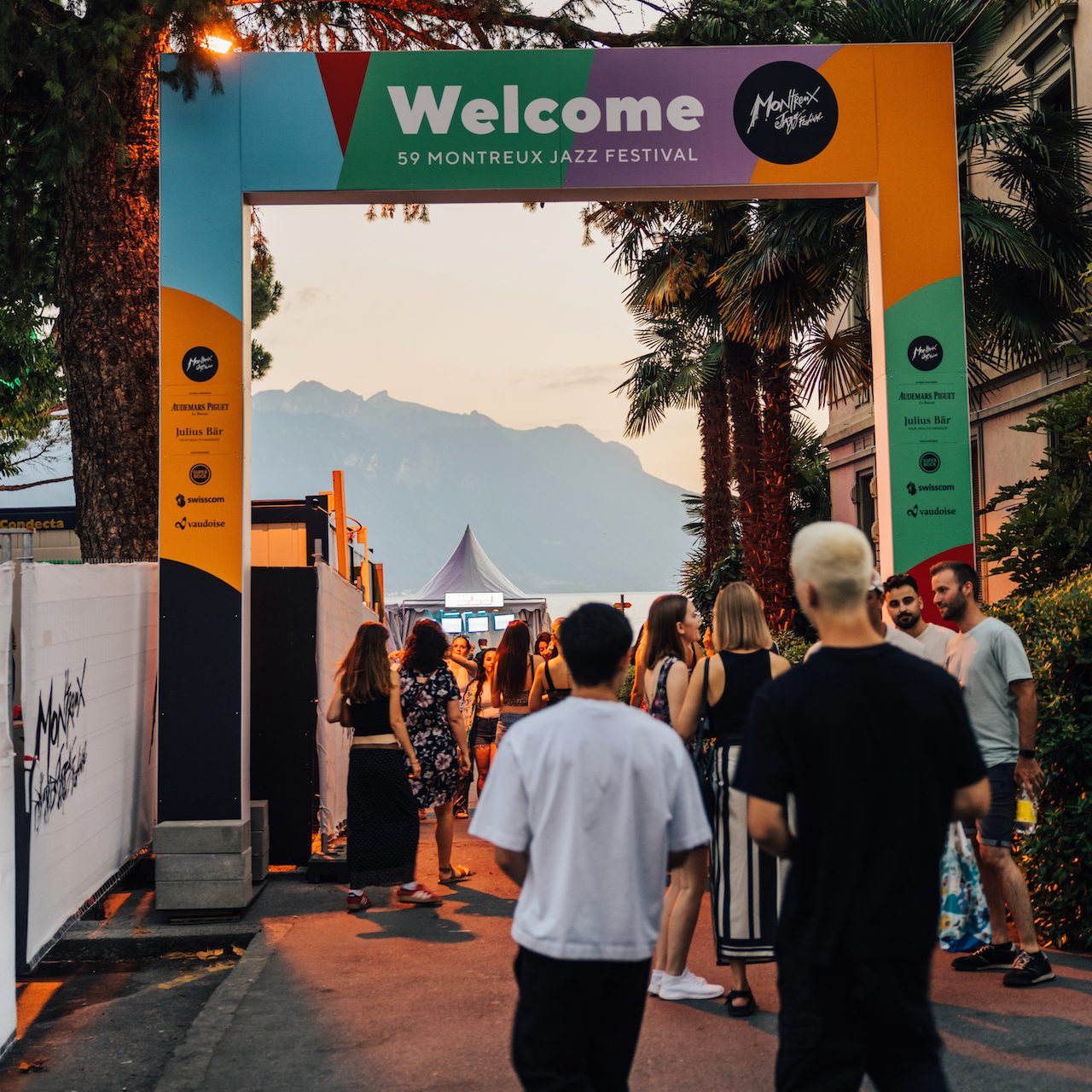
ZERO ZURICH: The way you’ve described Montreux, built on gentleness, elegance, and human connection, feels like the only sustainable path to scaling in today’s rapidly changing industry. With the rise of massive commercial festivals, shifting dynamics with major players like Live Nation, and increasing pressure to grow, how do you preserve Montreux’s identity while navigating this new landscape? Can a model built on intimacy and care truly scale?
MATHIEU JATON: It’s true. What we’re doing is a bit irrational in today’s industry. It’s not about scale or spectacle for us. We see ourselves more like craftsmen. Every part of the Montreux experience – how it’s built, how it feels – is carefully crafted. That’s what elegance means to me. It’s not flashy or in-your-face like showbiz. It’s subtle. It’s emotional. It has to vibrate, to make you feel something real.
And this mindset goes deep into the team. Our staff understand that there’s authenticity behind everything we do. That’s the key word for me – authenticity. It’s what sets Montreux apart.
This year, we saw it clearly. Lionel Richie? Amazing show, incredibly polished, super professional. But emotionally? It felt more like a perfectly made product – well done, but without much soul. Then Diana Ross, also iconic, great voice, beautiful production. But she brought warmth, a certain sweetness, that touched people.
And then RAYE. She was something else. Just 27, barefoot, lying on the stage, totally herself. Her music may not be revolutionary, but her presence, her humanity, that was unforgettable. And you could feel the audience, kids, adults, even 80-year-olds, completely moved by her. That’s the human factor. That’s the real magic.
And it’s not just with artists. It’s how we treat everyone. One of the best pieces of advice I ever got came from my father, when I first joined the festival in the ’90s. He said, I don’t have much advice, but remember: treat everyone well. Because one day, you’ll meet them again on your way. That stayed with me. Whether it’s a street cleaner or a government minister, we treat everyone with the same respect. That’s the spirit of Montreux.
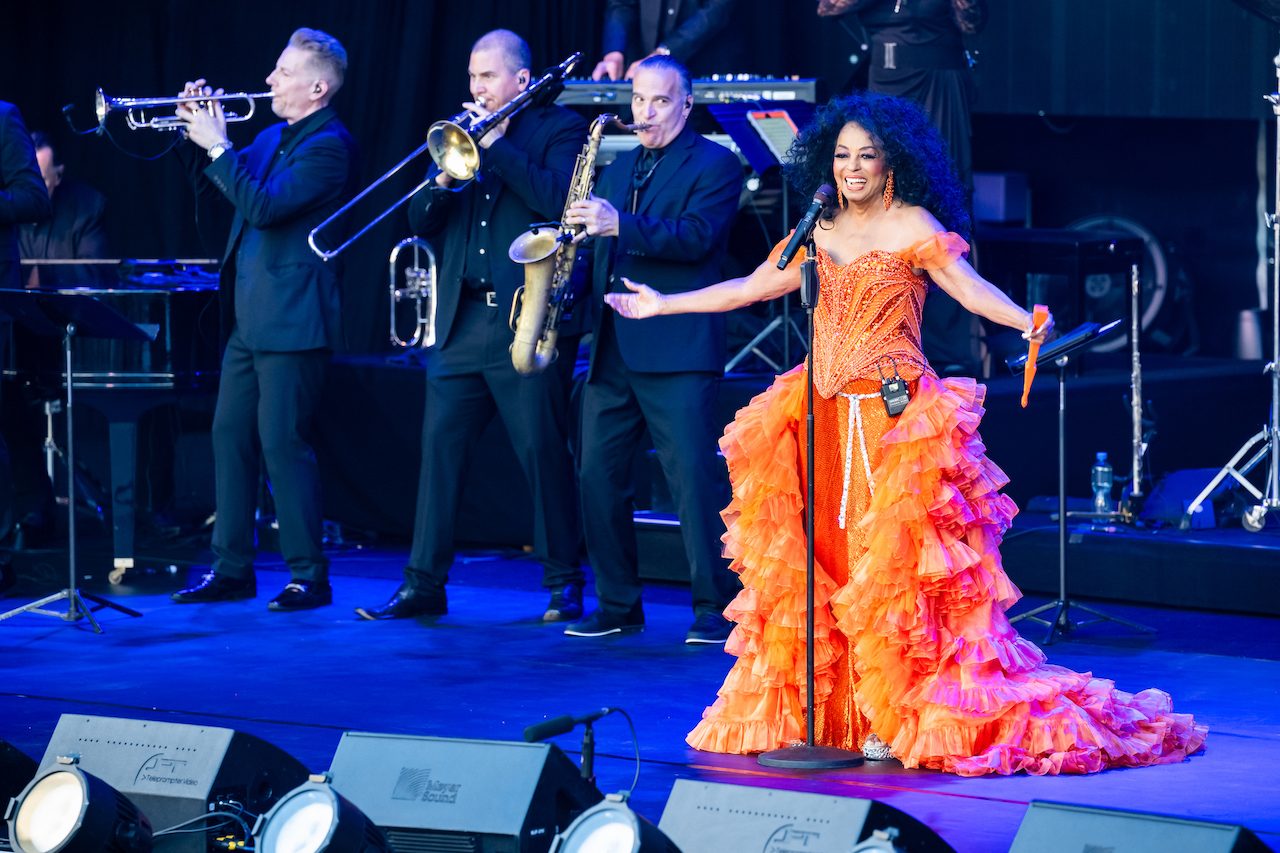
ZERO ZURICH: Many locals from Lausanne claim that volunteering at the Montreux Jazz Festival is almost a rite of passage, a defining experience for young people in the region. They speak about the pride of earning that badge, the thrill of getting access to all stages, and even the chance to meet artists or help with their arrival, sometimes with zero prior experience. From your perspective, how important is this tradition today?
MATHIEU JATON: Twenty years ago, it might have been more about partying around the artists and having fun. But today, being part of Montreux means something different. It’s about being part of an institution, a community that spans generations. And it’s not just the young people, it’s everyone who feels a sense of pride in contributing to something meaningful.
When you see the volunteers and staff walking around in their Montreux T-shirts, whether here or even in places like Japan, it becomes a badge of identity. People recognize it and say: “Oh, you’re part of Montreux?” And that means something.
But it’s also a challenge, because this isn’t a short, weekend event. The festival lasts 16 days, so finding volunteers who are ready to commit for that long, often giving up their holidays to do it, that’s a real dedication. And yet, that’s what makes Montreux so special. It’s not just about going to a concert, it’s about becoming part of something larger, something that lasts far beyond the music itself.
While we call it volunteering, we actually compensate everyone who works at the festival. It’s not a formal salary, of course, but for a student, working two weeks at Montreux can mean earning something like 2,000 Swiss francs, which is a very solid summer job. But the truth is, it’s not really about the money. It’s about feeling that you’re part of something meaningful, that there’s a fair exchange – you give your time and energy, and we make sure your effort is recognized and your life made a little easier during those intense 16 days.
And to keep people committed for that long, some even taking two weeks off from their regular lives to be here, there has to be more than just compensation. What keeps them coming back is really the mindset and the atmosphere. At Montreux, we try to break down the usual hierarchies. Often in big events, you have this gap between production teams and festival staff, they operate in totally different worlds. But here, we work hard to bring everyone together, across roles and responsibilities, with shared purpose and respect.
Every time I speak to the staff, I remind them of the core values that define the Montreux spirit. In French, we say ”bienveillance”, which is hard to translate perfectly, but it’s about kindness, hospitality, elegance, and tolerance. That’s the foundation. It’s not just about putting on a show; it’s about how we do it, and the kind of human experience we create – for artists, for the audience, and for each other.
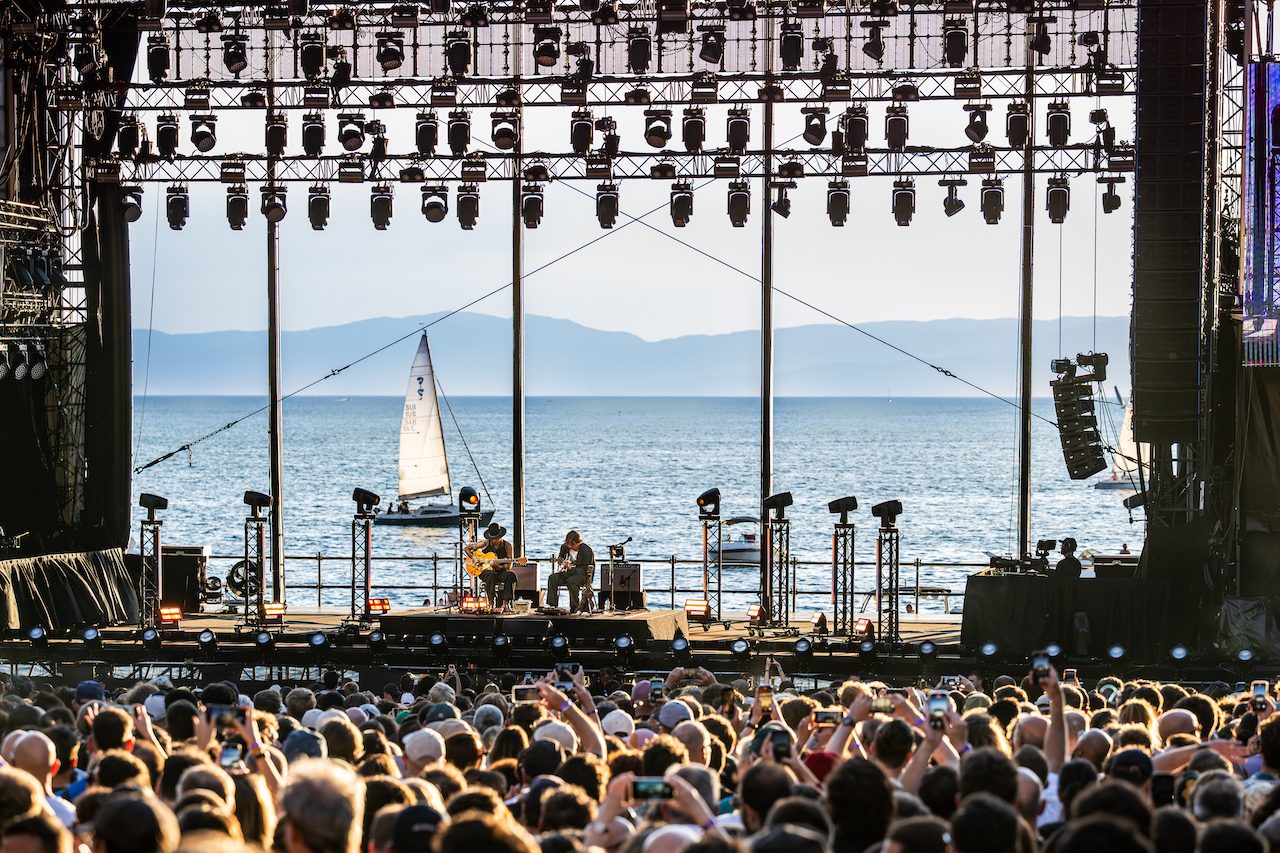
ZERO ZURICH: How does the festival continue to engage and empower youth in meaningful ways?
MATHIEU JATON: I remember participating at a music forum in London just after COVID, and I brought up this idea – that the next generation isn’t just chasing big names, they’re looking for deeper, more authentic experiences. And some of the big promoters looked at me like I was crazy. They said, just put Elton John in a stadium and it’ll sell. But I wasn’t talking about that.
This new generation has grown up fully digital, hyper-connected, but that’s exactly why they crave something real, something they can feel. They don’t just want a concert; they want a full experience. The location, the atmosphere, the emotion – it all has to be part of the equation. And I think Montreux offers that in a way that feels personal and profound.
The numbers prove it. Over the past three years, we’ve seen record-breaking ticket sales, more than at any other time in the festival’s history. This year, the main stage was 94% sold out across 16 days. That’s unheard of. At the start of the festival, we already had 8 to 10 concerts fully sold out, and I was watching the numbers climb every single day. Even the shows that weren’t sold out initially were filling up fast.
When we asked the audience why they came, many of them said: ”We just had to be part of it.” Some came too late to get tickets for artists like Diana Ross or Lionel Richie, but they still booked for other nights, just to be there, just to feel it. That’s what Montreux is about. It’s not just about the headliners, it’s about the connection, the moment, the experience they don’t want to miss.
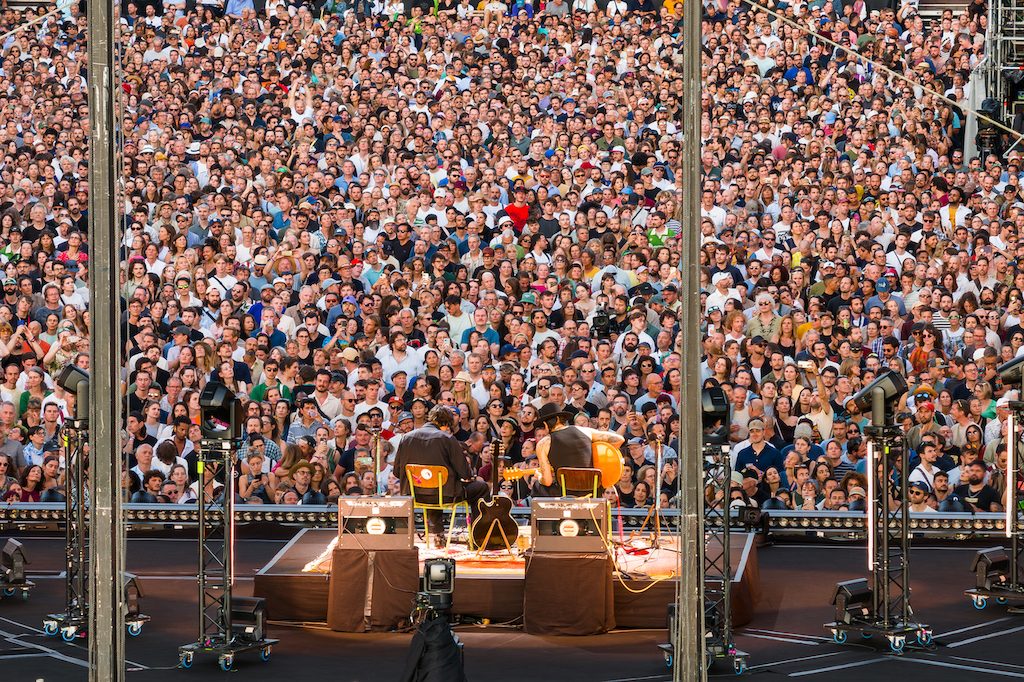
ZERO ZURICH: With a 92% average occupancy rate, 25 sold-out nights, millions of views online, over 500 media representatives, and a team of 2,500 volunteers, all powered by a 30-million-franc budget over 16 intense days, Montreux clearly operates on an extraordinary scale. But behind these numbers is a culture of bold creativity and controlled chaos. How do you manage that scale without losing the spirit? And more importantly, how do you provoke it, how do you build a culture where taking creative risks is not just allowed, but expected?
MATHIEU JATON: It’s because we’re willing to take risks. Most festivals want to lock in their lineups early, they launch in October or November, so they can sell tickets for months in advance. We do the opposite. We launch our program at the end of April, sometimes with only two months to sell. For many promoters, that sounds completely crazy. But for us, it’s the only way to stay relevant, nimble, and authentic.
Why? Because if you wait, you get access to artists in real time, when the big tours are being announced, when the energy is peaking. That’s how we were able to get acts like RÜFÜS DU SOL, Benson Boone, Chaka Khan – you’re there, listening, watching the scene evolve, and responding to it.
It’s not easy. November and December are brutal – we might be staring at 8 empty slots on the main stage, not knowing how it’ll come together. But that’s where the passion and the team really kick in. We ask ourselves: What’s the story we want to tell this year? Maybe we’ve locked in three legends. Great. Now let’s find three indie names and two rising stars. Then we build around that.
Sometimes magic happens, like this year, someone on the team suggested The Black Keys, who had never played Montreux before. Then someone else connected the dots with Hermanos Gutiérrez, who are local and whose album was produced by Dan Auerbach. Suddenly we had a beautiful double bill that made perfect artistic sense.
Sure, we could play it safe, book a big French act that we know will sell 4,000 tickets without a problem. But that’s not Montreux. We’re not just curating names; we’re curating experiences, moments, and musical stories. And yes, every September or October, we look at each other and say: “There’s no way next year will top this”. But somehow, we always find a way, because we stay curious, stay open, and stay ready to take the leap.
ZERO ZURICH: You’ve said that after each edition, there’s a moment where you wonder how you’ll ever top it, and yet, year after year, Montreux seems to surpass itself. This year feels like another example of that. Do you feel you’ve exceeded your own expectations again? And what does it take to keep raising the bar without losing the essence of Montreux?
MATHIEU JATON: Yes, I think we did. I remember standing in front of the press, announcing Neil Young, Santana, Lionel Richie, Diana Ross, and realizing I still had 20 more names to reveal. I thought: “Do people really grasp what this lineup means?” It felt like a moment where we truly exceeded expectations.
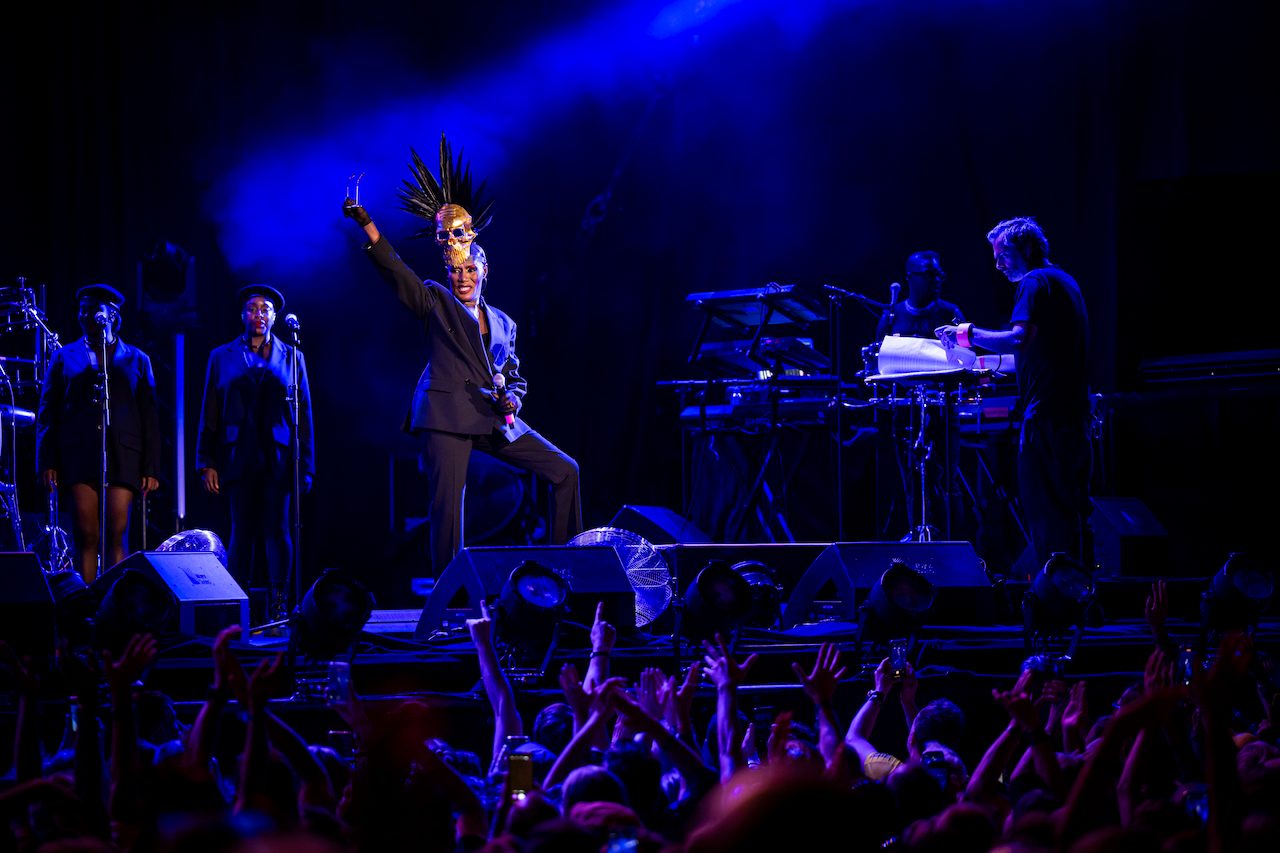
ZERO ZURICH: The festival positions itself as a sanctuary for artistic freedom and authentic, intimate connection with fans. Some of the artists completely re-think their concerts just for Montreux. Do you think that kind of intimacy and spontaneity, like Grace Jones riding through the audience high-fiving fans, or FKA Twigs casually buying burgers for her dancers on the promenade, can only happen in Montreux?
MATHIEU JATON: Exactly, and that kind of moment is only possible in Montreux because of the size, the setup, the history, and especially the audience. Every person in the room bought a ticket specifically to see that artist. It’s not like a big open-air festival with 40,000 people wandering between stages. Here, the artist knows the crowd is truly there for them, and that creates a completely different kind of connection.
That’s the true magic of Montreux. Artists here feel completely free to express themselves. I remember when Matt Bellamy from Muse came early for the 50th anniversary and asked if it was really true, he could play whatever he wanted, even just B-sides with no hits. I told him: “If there’s one place on Earth where the audience will truly listen and follow you, it’s here.” So, he did exactly that, and the audience was moved to tears because they knew it was something special and genuine.
This freedom and trust create a unique atmosphere. Artists like FKA Twigs, playing here for the first time in Switzerland, feel welcomed and comfortable, even simple things like eating on the walkway without fuss. That’s the beauty of Montreux: it’s small, intimate, and out of the usual music business pressure, allowing true connection between artist and audience.
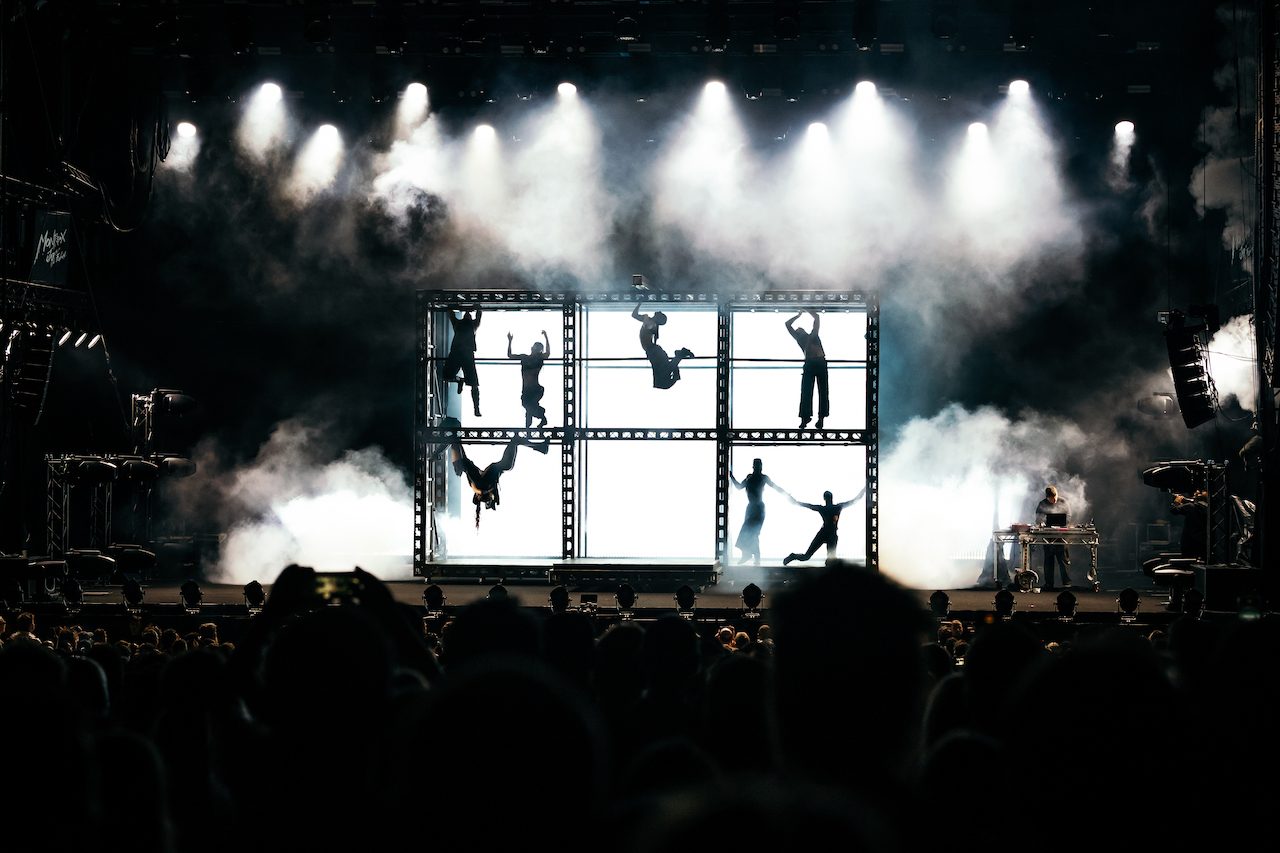
ZERO ZURICH: Have you ever considered creating standalone Montreux Jazz Festival membership clubs around the world, completely independent from cafes or band collaborations?
MATHIEU JATON: I’m actually opening the first Montreux Jazz Loft, which is kind of like an apartment version of that concept. It’ll be in Lausanne, and it’s set to launch in summer 2026. It’s a beautiful space, about 2250 square meters, with a big screen, full archives of the festival, a bartender, and all the elements that create a unique Montreux experience. This will be our first test before possibly expanding further.
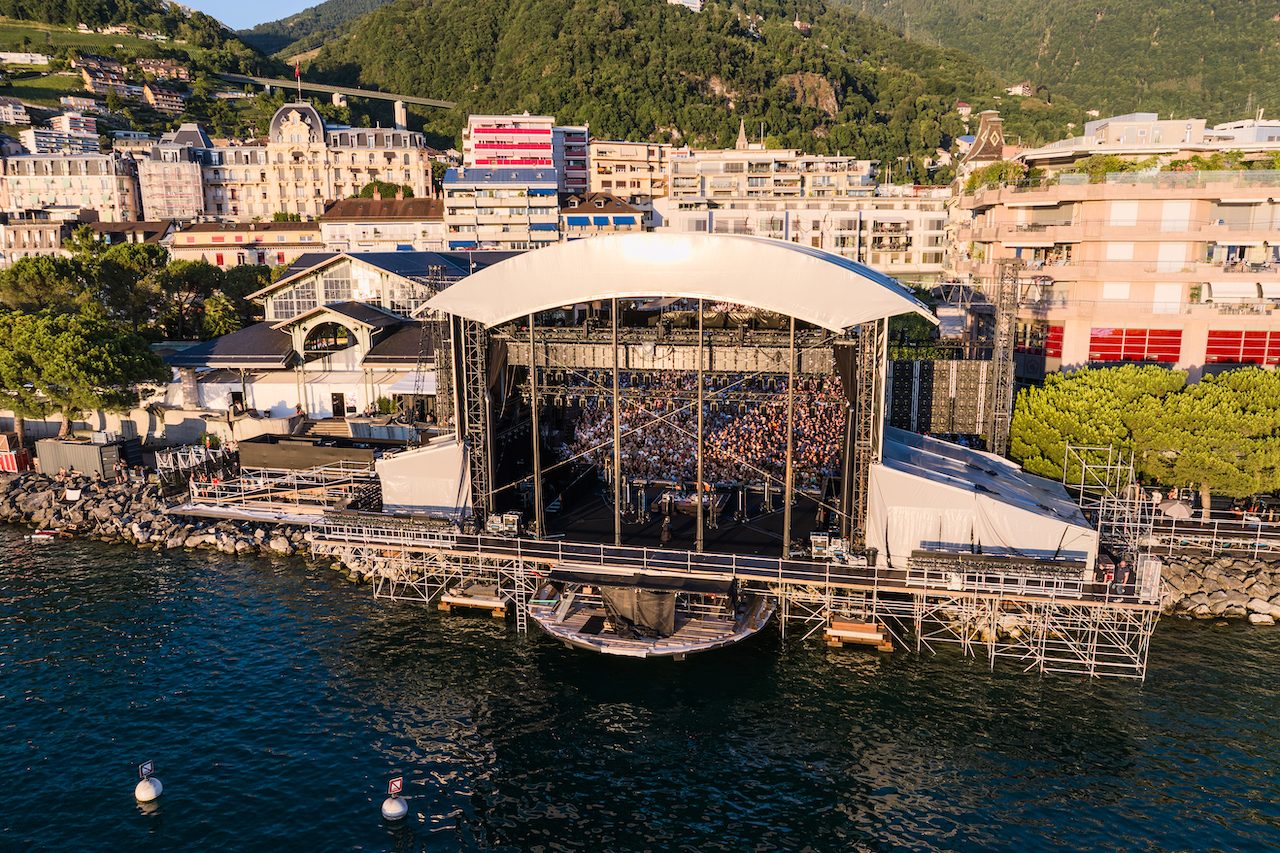
ZERO ZURICH: How do you plan to develop and showcase the incredible archives of the Montreux Jazz Festival?
MATHIEU JATON: Absolutely, that’s a key topic for us. When we started, it was just a festival with some small activities. Now, the brand is so strong that we’ve launched our first private club, which will expand like a Soho House. We’re opening a loft, have six festivals abroad, our cafes, and a membership circle, creating a worldwide community around the Montreux spirit.
ZERO ZURICH: How do you envision the Montreux Jazz Festival expanding its brand globally, and what role do you see Switzerland playing in this international growth?
MATHIEU JATON: Absolutely, that’s the final goal – to see Montreux Jazz Festival not just as a local or national treasure, but as a truly global cultural export, with Switzerland proudly at its heart.


